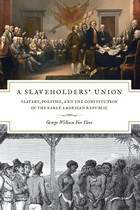

They were a cosmopolitan people who had knowledge of the world, spoke European languages and were often skilled. These slaves did not come directly from Africa, but from European trading ports. Berlin calls them and those who followed in the next few decades the charter generation of Atlantic creoles. In 1619 the first 20 slaves in North America landed in Jamestown, Va. "The lives of slaves changed radically over the course of the two centuries between the time the first black people arrived in mainland North America and the beginning of the cotton revolution in the first decade of the nineteenth century," Berlin writes. The final feature, and to Berlin the most important one, is that slavery was an ever-changing institution.

Second, the first two centuries of slavery produced three distinct generations of slaves: the charter generations of the 1600s, the plantation generations of the late 1600s through the late 1700s, and the revolutionary generations from the American Revolution into the new century. In the early 1800s, Berlin writes, "the vast majority of black people, slave and free, did not reside in the blackbelt, grow cotton, or subscribe to Christianity."īerlin has written a sweeping history that builds upon the pioneering work of John Hope Franklin, John Blassingame, Eugene Genovese, Herbert Gutman and Edmund Morgan, and shines as both a comprehensive and astute synthesis of current scholarship and as an original contribution to the field. When we think of slavery, we conjure up an image of God-fearing plantation slaves picking cotton in the antebellum South on the eve of the Civil War, a stereotype straight out of "Gone With the Wind." When the Civil War broke out in 1861, slavery had existed in America for almost 2 1/2 centuries the first 200 years were very different from the last decades, from 1810 to the fall of slavery and the Confederacy in 1865. It is a story most Americans do not know. In "Many Thousands Gone," Ira Berlin, a history professor at the University of Maryland and one of the leading scholars on slavery, tells the complex and neglected story of American slavery from 1619 through about 1810.


 0 kommentar(er)
0 kommentar(er)
